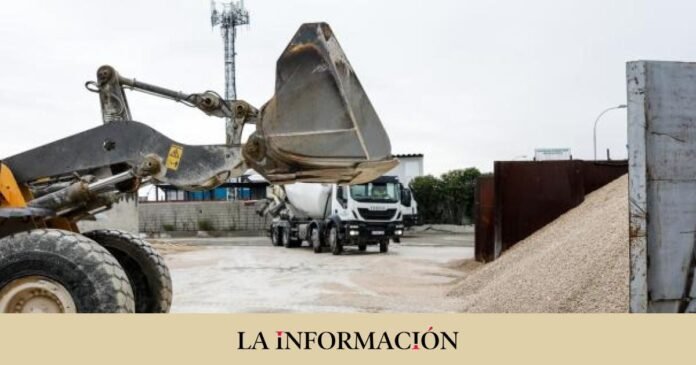Spanish industrial activity in check. The sector has been affected by the slowdown in orders in July. As indicated by S&P Global, “weak demand” has caused a reduction in production in the manufacturing area, and has meant the “biggest drop in new orders so far this year.” The HCOB PMI index of activity of the Spanish manufacturing sector, prepared by S&P Global, this year has integrated IHS Markit. According to these experts, the area has stood at 47.8 points, falling below the 48 points reached in June and the 50 that separate growth from contraction.
Input prices fell at the steepest pace since June 2009 and prices charged fell at the strongest pace in just over three years, while new orders fell for the fourth consecutive month. A factor contributing to the drop in these sales was “a stronger deterioration in demand from the foreign market” and in fact “new orders for exports decreased at a significant rate, which was also the fastest so far this year to date.” the date”. The companies responded to this situation by reducing the purchase of inputs at a faster rate and also cutting their workforce for the second consecutive month, although they detail that “the rate of job reduction was only slight and unchanged compared to that observed in June” .
Regarding the coming months, Spanish manufacturing companies maintain “a positive outlook regarding their future production levels” and mention “growth opportunities”, while expecting “a rebound in market demand and planned capacity expansions” . Nonetheless, the degree of confidence remained historically low and only modest overall, S&P continues. Regarding these data, the chief economist of Hamburg Commercial Bank, Cyrus de la Rubia, considers that “the deterioration of the Spanish manufacturing sector is advancing at a steady pace, although without panic” and recognizes that “there is a greater possibility that the sector will experience a recession slight in the second half of the year”.
he adds that the drop in activity is “much more pronounced in other parts of the euro zone”, although he insists that “the Spanish export sector is facing a worrying phase as new export orders lose more ground”.
Eurozone manufacturing, a “prolonged recession”
On the other hand, the manufacturing sector of the euro zone accelerated the rate of contraction again during the month of July, when the PMI index stood at 42.7 points, compared to 43.4 the previous month, which is the worst reading of the data. in 38 months. “It appears that the euro zone manufacturing sector is on track for a prolonged recession,” said Cyrus de la Rubia, chief economist at Hamburg Commercial Bank, adding that the largest declines seen in production, new orders and volumes of buying at the start of the third quarter suggests that the eurozone economy as a whole will have “a bumpy ride in the second half of the year.”
In this sense, the July survey found that production volumes, new orders and employment, as well as purchasing activity in the euro area decreased at a faster pace than in June. In fact, the declines observed in industrial production and demand were the sharpest since the 2008 financial crisis outside of those recorded during the pandemic lockdowns.
Contrary to the weakness of the euro zone economy, a recovery in delivery times was demonstrated in July, confirming the rapid improvement in supply chains. These developments also had an impact on costs, as average input prices fell at the fastest rate since May 2009, while prices charged for Eurozone products
declined by the most in nearly 14 years.
“The European Central Bank (ECB) will be pleased to see that the deflation of sales prices has accelerated again, since the prices charged have decreased at the fastest rate in almost fourteen years,” said De la Rubia, noting that Concern about inflation in the services sector will continue to be a priority on the agenda of the institution chaired by Christine Lagarde.

